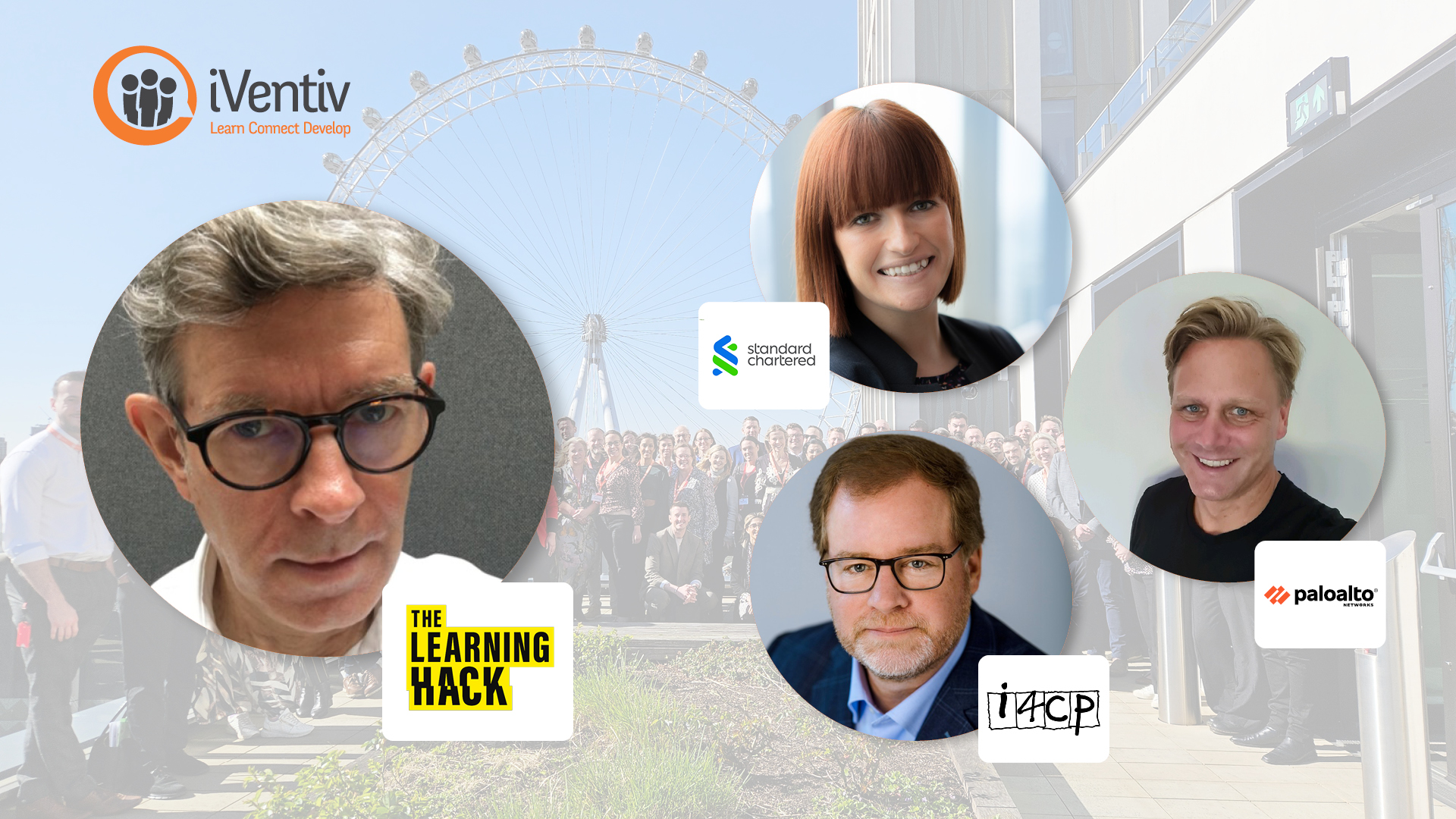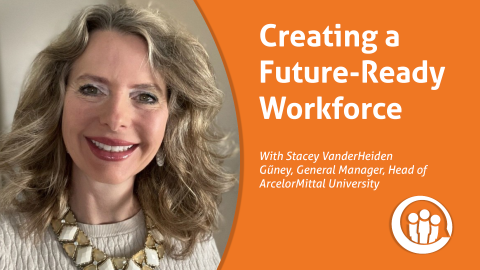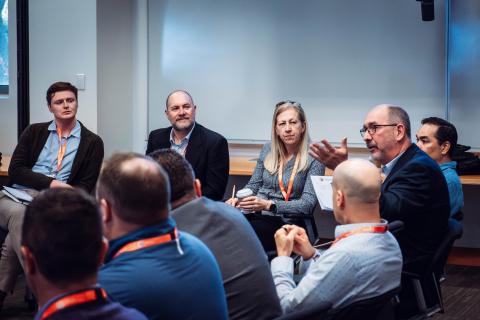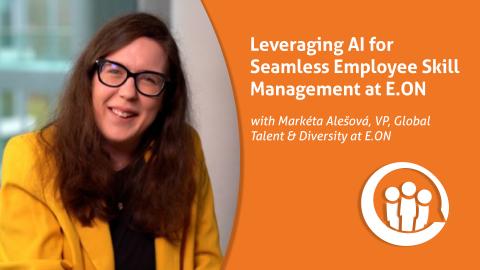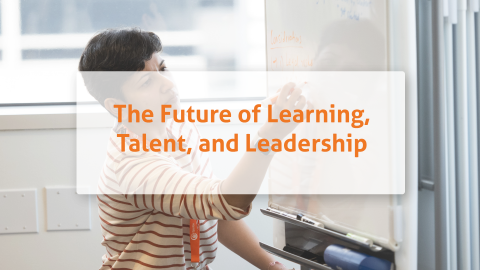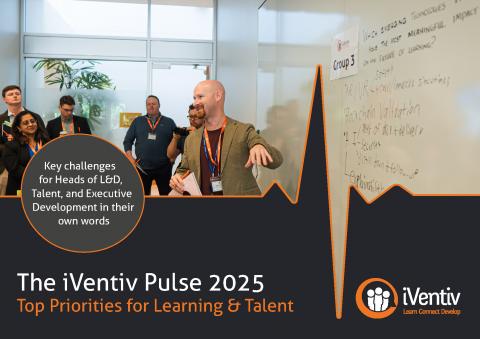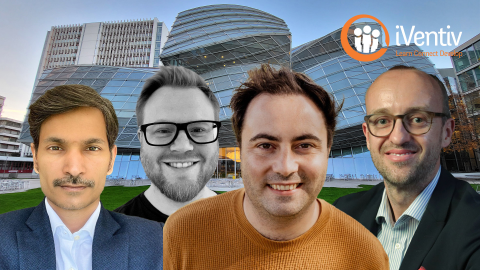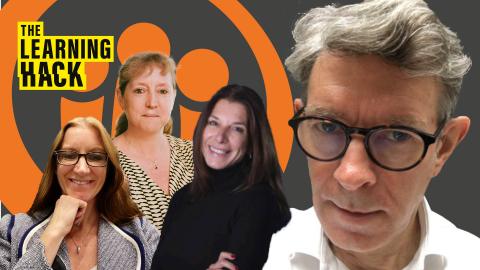Submitted by Kerry Summers on
Rethinking Culture Change with Kevin Oakes
John Helmer’s first guest was Kevin Oakes, CEO of i4cp and author of Cultural Renovation, to discuss what it really takes to build a high-performing workplace culture.
Rather than advocate for radical transformation, Kevin introduces a more sustainable and practical approach: culture renovation. “We were fuelled by one particular statistic,” he explains, “85% of companies who try to change their culture fail.” Through extensive research, i4cp identified 18 leadership actions used by companies that succeeded, and none of them, he says, “transformed” in the traditional sense.
Instead, successful organisations “carefully renovated their companies, keeping what was unique […] but improving areas […] in order to improve value.” The key, he says, is knowing what to preserve and what to replace. Kevin organises the process into three stages: Plan, Build, and Maintain. Rushing into change without a solid foundation can do more harm than good. He likens the process to renovating a house and says “if you ran in there and just started knocking down walls without a plan, you could take the whole thing down.”
A core element of renovation, according to Kevin, is listening - deeply and often.
“The worst thing an executive team can do is lock themselves in a conference room and decide amongst themselves […] what needs to change” – Kevin Oakes, i4cp
Healthy cultures share several common traits. According to Kevin, they are “transparent,” have a “shared, well-understood purpose,” and leaders who “walk the talk.”
One simple test?
“Companies where employees can’t even remember the values tend to be low performance organisations. The ones that know the values off the top of their head, they tend to be high performing.”
But it’s not just about top-down influence. Kevin stresses the role of informal networks – those energisers and influencers hidden throughout the organisation who drive change through trust and enthusiasm. Using social network analysis, i4cp helps identify these people who “often fly under the radar […] but they have great influence,” he explains.
For Kevin, “if leaders don’t want the culture to change, then it almost never will.” Leaders must communicate openly, align behaviour with values, and visibly measure progress to keep momentum alive.
In an era of AI and constant disruption, the companies thriving are those that see change not as a threat, but as an opportunity.
“You want to create a culture that is change-ready,” says Kevin. “The strong are getting stronger through AI […] the others are falling behind.”
John’s talk with Kevin concludes with a powerful message: culture isn’t built overnight or with slogans on walls. It’s built through intention, integrity, and involvement – renovated, not replaced.
Kim McMurdo on Rethinking Leadership for a Connected World
Kim McMurdo, Global Head of Organisational Development at Standard Chartered, challenges conventional thinking about Leadership Development in today’s global and hybrid world in her conversation with John.
With over 17 years in financial services across Asia, Europe, and the US, Kim brings deep insight into the complexity of leadership in large, international organisations. She says that Standard Chartered has “long been a truly global and hybrid organisation”, and that the challenge is “how do you get colleagues learning in a network where those nodes might not even be collocated?”
A central theme of the conversation is Kim’s belief that focusing solely on the individual is no longer sufficient.
“While […] hyper-personalisation to help individuals will, of course, continue to be important,” she says, “it’s a dead end to only think about the individual in [the leadership] construct.”
Instead, she champions a shift towards collective capability – cultivating “coalitions of leaders” who can operate across organisational boundaries and partner effectively in ecosystems.
She illustrates this shift with three core practices:
- Social learning at scale: “Don’t do learning in the shadows one-on-one with an executive coach. Do it out loud, in big group collectives.”
- Co-creation with the business: Leadership development must be contextual and embedded in real organisational challenges.
- Partnering beyond the organisation – “Not as a provider or spectator, but in the sandpit with us,” collaborating with clients, suppliers—even competitors.
However, this collective approach doesn’t come without challenges. One barrier, she says, is how performance is assessed. “We often only assess individual competence and personality,” she explains, and “there isn’t much work being done on assessing collective or institutional capability.”
Another, perhaps even trickier barrier for Kim?
Patience. Building cross-boundary trust and shared leadership isn’t a quick fix.
“If we’re thinking about developing deep trust with leaders across a network, that’s not going to be a kind of instant ROI.” – Kim McMurdo, Standard Chartered
Kim calls for alignment between leadership messaging and incentives. “If you say you value cross-border collaborative leadership, then that’s what you measure, that’s what you prioritise, and that’s what you reward.”
A particularly powerful metaphor she shares – coined by Tony O’Driscoll – is the “wirearchy,” a network of influence that operates beyond the traditional org chart. “It’s the soft connective tissue of influence, partnership, and collaboration,” she says. “Messier, but more effective.”
She also urges organisations not to focus solely on the top. “All leaders want to leave a legacy,” she says, “but real change happens with those on the way up.” Rather than remedial training, leadership development should feel empowering, context-rich, and rooted in peer connection.
With clarity, compassion, and a bold vision, Kim McMurdo is helping redefine what effective leadership looks like for the future – one team at a time.
Leading Through Disruption: Terry Jones on Culture, AI, and the Future of Talent at Palo Alto Networks
In a world of constant disruption, Terry Jones, Senior Director of Global Talent and Development at Palo Alto Networks, believes the key to thriving isn’t just about reacting to change – it’s about embedding it into the DNA of the organisation.
Terry shares candid insights into the mindset and systems needed to futureproof talent development, drawing on his leadership experience at tech giants like Google and Palo Alto Networks, as well as in the financial sector.
Culture First, Always
While tech may appear to operate on a different wavelength, Terry insists the people aren’t fundamentally different – but the culture is. “What is different,” he explains, “is the culture and the leadership […] places like Google and Palo Alto Networks amplify values like innovation and disruption.” These companies, he says, create the right environment and culture to enable people to come in, do their best work, self-actualise, and therefore perform at a very high level.
That culture of experimentation helps tech organisations stay resilient amid change. “They set up their whole systems, processes, and ways of operating to drive continuous change,” Terry says. “There’s already a sandbox for experimentation built in.”
AI: A Performance Enabler, Not a Magic Bullet
With AI dominating conversations across the business landscape, Terry is clear on one thing: “Lead with humans empowered by the AI, rather than letting the AI overpower.”
At Palo Alto Networks, this human-first approach has yielded tangible results. After delivering a non-technical AI learning series, the company saw a 53% increase in AI tool usage, translating to 40,000 hours saved per month which, he says, “allowed people to focus on even higher-value work.”
For HR leaders navigating the hype, Terry advises returning to the basics: “What’s the problem we’re trying to solve here? AI might be the solution, but it’s not always the starting point.” He advocates for a structured, problem-first approach, paired with a keen understanding of where AI can augment –not replace – human capability.
Skills, Dashboards, and Dynamic Development
Terry also challenges rigid views of competency models. “They’re not static” he says, “any system or framework must have flexibility built in from the outset.” He envisions a “skills dashboard” using AI to capture both current and historical capabilities, revealing untapped potential within organisations and linking individuals to future-critical skills and personalised development.
HR’s Evolution: From Admin to Systemic Thinkers
As AI automates transactional tasks, Terry says that HR must step up.
“HR needs to think more systemically […] what are all the moving parts that need to change?” – Terry Jones, Palo Alto Networks
He foresees blurred lines between roles like business partners and talent specialists, with an increasing need to drive performance through real-time data, insight, and human-centred leadership.
In Terry’s world, culture, curiosity, and a touch of levity are the secret ingredients for building agile, human-centric organisations, ready for whatever comes next.
Watch this episode of The Learning Hack Podcast on YouTube now.
Kevin Oakes is the CEO and Founder of the Institute for Corporate Productivity (i4cp), the world’s leading human capital research firm focusing on the people practices that drive high performance. Kevin is the author of Culture Renovation, which provides an 18-step blueprint on how to change organizational culture. Already on its 5th printing, this book has been on numerous best seller lists since it was first released in 2021.
Kim’s current role is Head of Organisational Development at Standard Chartered Bank which means she is obsessed with how to develop, enable, measure, and engage current and future leaders at the Bank, so that they can aspire, inspire, and execute on the Bank’s purpose to drive commerce and prosperity through their unique diversity.
Terry is the Head of International Talent Development at Palo Alto Networks, where he leads all things and teams Talent, Learning & Development related in EMEA, JAPAC and LATAM. He also leads the talent and organisation development strategy and programmes that build capability and elevate performance at all levels and all functions.
